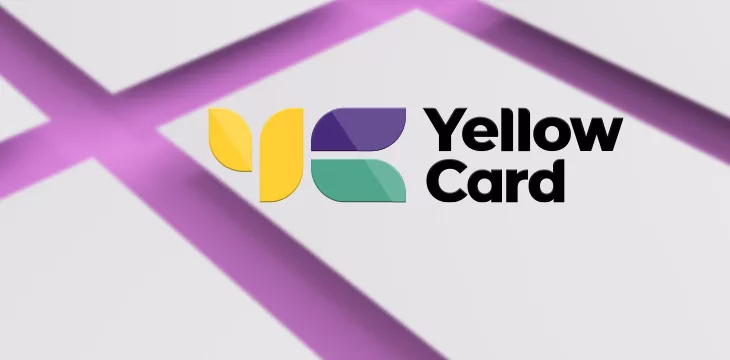|
Getting your Trinity Audio player ready...
|
2023 was a challenging year for African digital asset and blockchain startups. Vibra exchange, stablecoin payment gateway Lazerpay, and Bundle Africa, a trading and payment platform, all shut down last year. However, for Yellow Card, one of the largest exchanges in the continent, 2023 was its best year yet as it set a new record in trading volume, won a prestigious award, and expanded to cover 20 countries.
CoinGeek caught up with Chief Marketing Officer John Colson to talk about the year that was, Africa’s digital asset opportunities and challenges, and what to expect in 2024.
“This year saw dynamic progress in the African digital assets and blockchain industry. There was a noticeable increase in adoption and awareness, driven by the growing utilization of digital assets,” Colson said.
He added that inflation, the costly and unavailable traditional finance, and the continued rise in mobile money usage were major tailwinds for digital asset adoption.
According to Chainalysis, Nigeria was second globally for adoption and first for P2P exchange volume. Kenya and Ghana ranked in the top 30, with South Africa 31st.
Colson revealed that in 2023, stablecoins became a significant player in the blockchain space as Africans explored solutions to currency devaluations. Nigeria’s naira, for instance, has lost half its value against the U.S. dollar since June to set a new record low.
Hurdles, regulations, and 2024 predictions
2023 was a year of reckoning for the global technology industry, with over 260,000 employees losing their jobs. African Web3 and digital asset startups were not spared, with some laying off workers to adopt a lean approach while others shut down.
According to Colson, startups were forced to build sustainable operations, focus on financial efficiency, and “steer clear of industry hype.”
Regulations proved challenging in some jurisdictions. In Nigeria, Web3 startups can barely access banking services due to the central bank’s anti-crypto stance, and this narrative is no different in Kenya, South Africa, Ghana, and other leading Bitcoin hubs. Some strides have been made, but regulators are far from offering a comprehensive framework for the sector.
While some in the sector have been apprehensive towards regulations, Colson believes proper laws are the only way “to ensure user security, foster transparency, and build trust. In addition, regulation will no doubt reduce scams, encourage innovation, and increase investor confidence.”
However, over-regulation could stifle the industry, he added. The best approach is for the government, regulatory agencies, and industry stakeholders to collaborate in the law-making process.
This year, Colson believes Africa’s blockchain and digital asset adoption will continue to grow. He pointed out that education and awareness initiatives will be vital to destigmatizing digital assets and positioning them as the solution to financial exclusion.
A bumper year for Yellow Card
Despite its peers’ challenges, including shutdowns, Yellow Card had its best year yet in 2023.
“[Last] year, we expanded into four new countries (Togo, Benin, Burkina Faso, and Mali) and are now present in 20 African countries. We’ve also had a massive increase in our customer base, resulting in us ending the year with over two billion in volume,” Colson revealed.
The exchange also partnered with major global players, including USDC maker Circle, as its stablecoin offering took off. Yellow Card was the first company in Africa to offer PYUSD, PayPal’s (NASDAQ: PYPL) stablecoin, which launched in August last year.
“In addition, we launched our Payments API that enables businesses to on/off ramp their African customers to the stablecoin and crypto ecosystem in all our 20 supported countries,” he added.
Yellow Card’s year was capped with recognition at the Africa Financial Industry Summit (AFIS), where it received the Disrupter Of The Year award in November.
“This was a massive achievement, especially given the fact that this is traditionally a finance award. We can see that the finance industry is starting to see the significant impact that [digital asset] companies like Yellow Card are making.”
Colson expects 2024 to be an even better year, with the exchange pledging to expand to more countries, offer new services, and promote financial literacy with initiatives such as the Yellow Card Academy.
Watch: Africa: A region of opportunities for blockchain adoption

 07-02-2025
07-02-2025 





